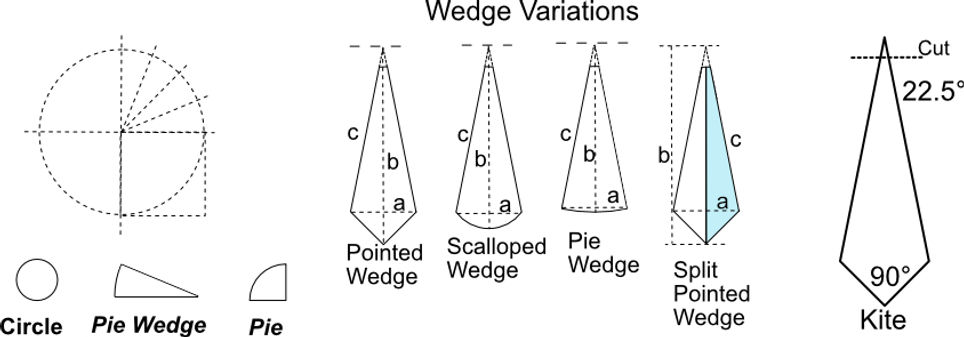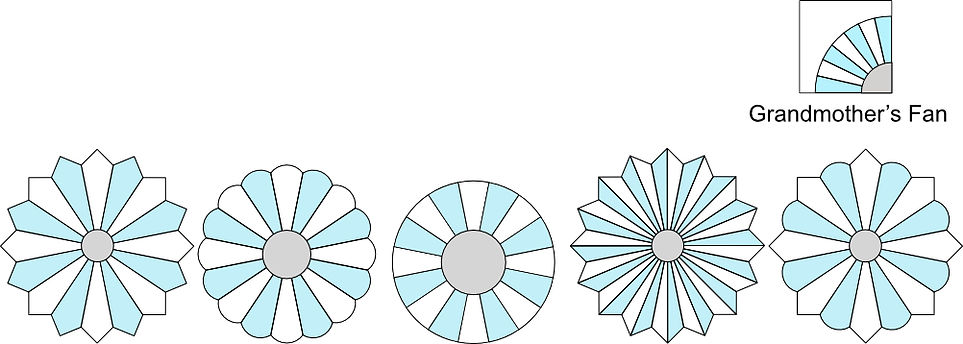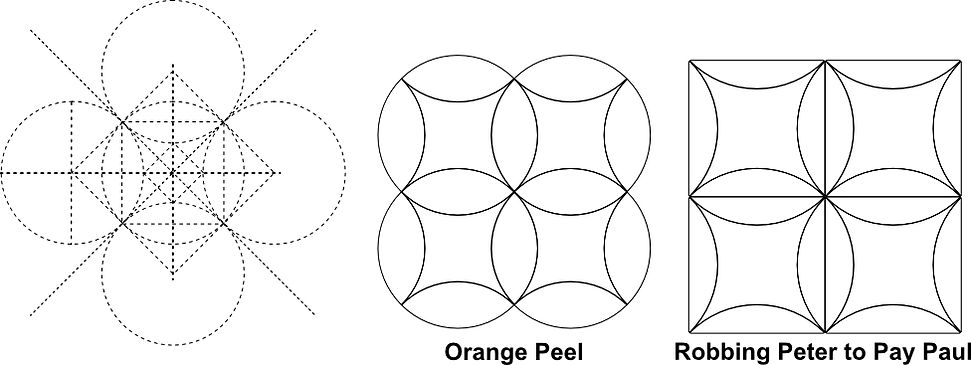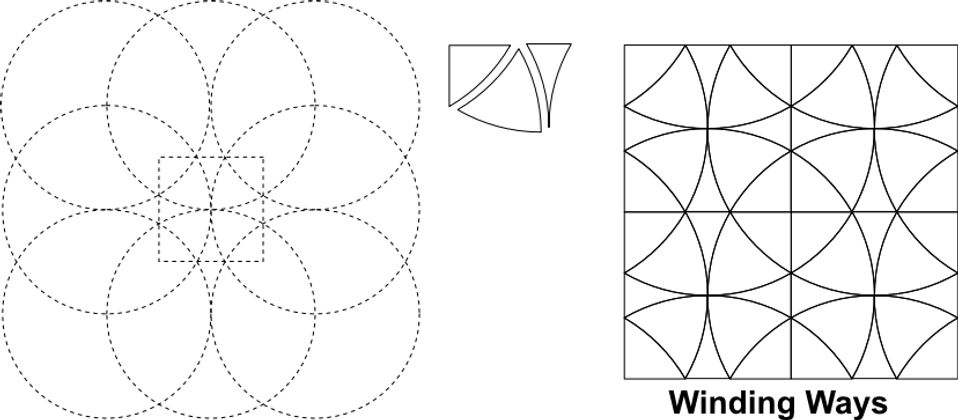Curved Designs
Dresden Plate and Grandmother's Fan
Dresden plate is a circle divided into equal size wedges. This example has 16 wedges, each making up 22.5° of the circle. The Grandmother's Fan example is a quarter circle divided into 7 wedges.


The outside edge of the wedges can be shaped different ways.
Pointed
Scalloped
Smooth Arc
Split Pointed
Mixed
Drunkard's Path and Baseball
Intersecting quarter-circles and a square will create several shapes.

Apple Core
Intersect 3 equal size circles at the quarter circle points to create the Apple Core. The intersecting area is an Orange Peel.

Robbing Peter to Pay Paul and Orange Peel
Intersect five identical circles with 1 circle in the center and the others intersecting the one-quarter points. Adding an intersecting square will create Robbing Peter to Pay Paul.

Flowering Snowball
If the outer circles in the above example are placed further apart and not touching, the center will have squared corners and is easier to piece. Dividing the center into quarters creates the Flowering Snowball pattern.

Winding Ways
Intersect 8 equally sized circles and a square to create Winding Ways. This is the easiest curve to sew because the curve is very gradual.

Double Wedding Ring
Intersect 5 double circles to make Double Wedding Ring. The center in this design is slightly different from the center created by single intersecting circles. When drafting this pattern, the larger circles overlap in the area marked "a" and colored gray. These 2 lines are changed to 1 straight line. The line marked "b" is changed from an arc to a straight line to make piecing easier. These two changes are so slight that they are not noticeable. The corner pieces are a kite shape.

